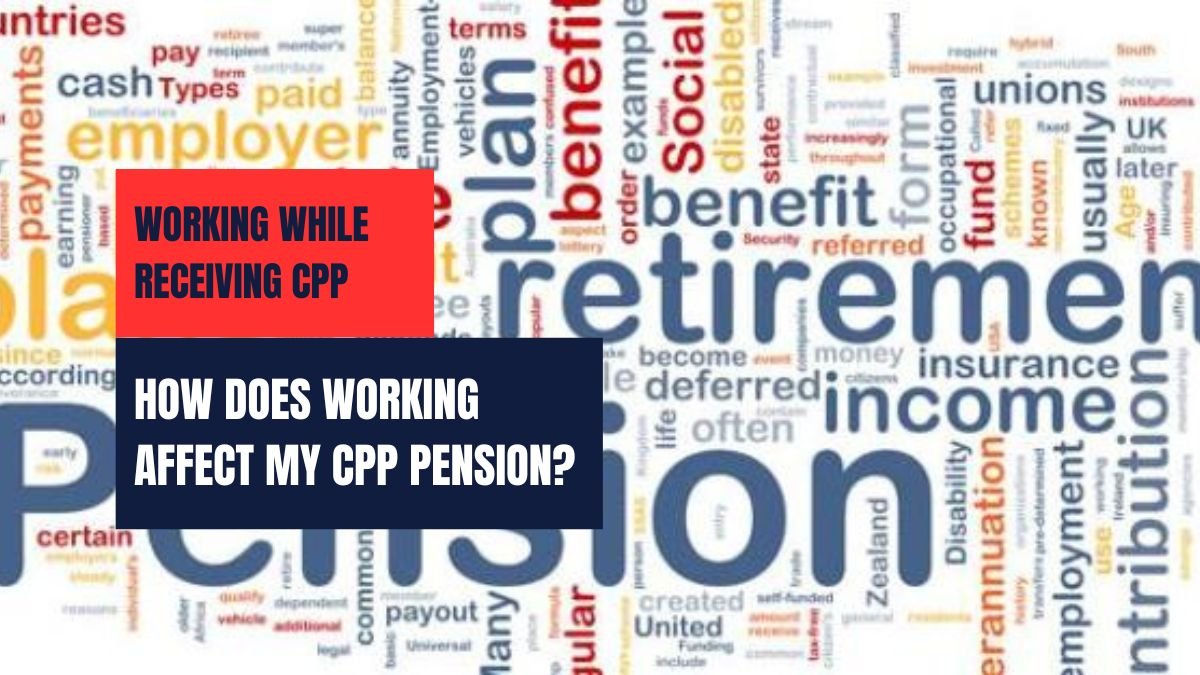The Canada Pension Plan (CPP) is a key part of retirement planning in Canada, offering financial support to individuals when they retire. If you continue working while receiving CPP benefits, it can impact both your pension and your contributions. This guide will explain how working while receiving CPP affects your benefits, contributions, and what you need to consider for a secure retirement.
Working While Receiving CPP
The CPP is a pension plan that requires contributions from the age of 18 until you retire. The contribution rate in 2023 is 5.95% from both employees and employers. Self-employed individuals are responsible for both contributions. You can continue working and contributing to CPP until the age of 70.
Table: CPP Contribution Rates
| Category | Contribution Rate (2023) |
|---|---|
| Employees | 5.95% |
| Employers | 5.95% |
| Self-Employed | 11.90% |
Continuing to work while receiving CPP can enhance your future benefits. The more you contribute, the higher your pension will be when you eventually retire. This system ensures that those who work longer or contribute more receive greater benefits.
What are CPP Contributions?
CPP contributions start when you begin earning income, typically around age 18. Both employees and employers contribute to the plan, while self-employed individuals make their own contributions. Contributions are mandatory until the age of 65. After 65, you can choose to stop contributing if you are retired or continue if you are still working.
Table: CPP Contribution Timeline
| Age | Action |
|---|---|
| 18-65 | Make CPP contributions |
| 65+ | Optional to continue contributing if working |
These contributions are crucial for determining the amount of your CPP pension. More contributions generally lead to a higher pension amount.
What Happens If You Keep Working While Getting CPP?
If you keep working while receiving CPP, several things may occur:
- Increased Contributions: Continuing to work means you will make more CPP contributions, which can increase your future pension payments.
- No Impact on Current Payments: Your current CPP payments will not be affected, but future payments may be adjusted based on additional contributions.
- Tax Obligations: CPP benefits are taxable, so you must file a tax return each year.
Table: Impact of Continuing to Work
| Aspect | Effect |
|---|---|
| Contributions | Increases with continued employment |
| Current Payments | Remain unchanged |
| Future Payments | May increase with more contributions |
| Tax Obligations | CPP benefits are taxable |
Working While Receiving CPP Benefits
To manage your CPP benefits while working, you should:
- Create a My CRA Account: This account allows you to track your contributions and manage your personal details.
- Monitor Your Pension: Regularly check your pension status to ensure accurate payments and manage your finances effectively.
- Plan Retirement Carefully: Starting CPP at age 65 is typically optimal. Delaying benefits beyond this age can reduce the total amount received.
Table: Key Actions for Managing CPP
| Action | Details |
|---|---|
| Create My CRA Account | Track contributions and benefits |
| Monitor Pension Status | Ensure accurate payments and updates |
| Plan Retirement Timing | Optimal to start at age 65 |
Conclusion
In summary, working while receiving CPP can positively impact your future pension by increasing your contributions. Understanding how CPP works and managing your contributions and benefits effectively will help you secure a comfortable retirement. Ensure you keep track of your payments and tax obligations to make the most of your CPP benefits.
FAQ’s
Can I work while receiving CPP benefits?
Yes, you can work while receiving CPP benefits. Your benefits will remain the same, but continued work can increase your future pension amount.
How does working affect my CPP pension?
Working while receiving CPP can increase your pension. Additional contributions may lead to a higher pension in the future.
How do I manage my CPP benefits while working?
Create and monitor your My CRA Account for tracking. Start CPP at age 65 for optimal benefits and file taxes accurately.





